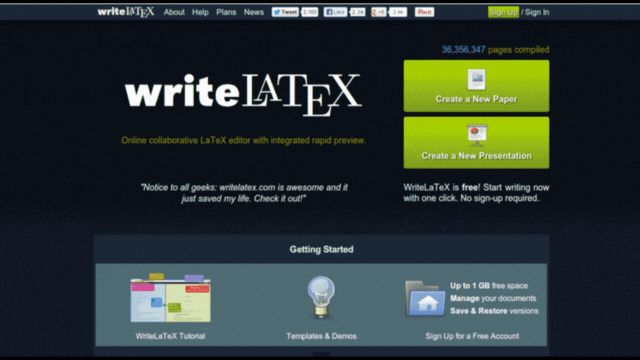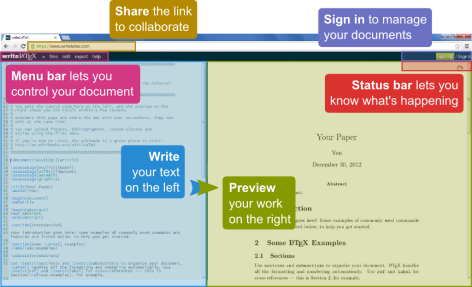- Posted on January 18, 2023
Celebrate good times! It's Overleaf's 10th Anniversary!
It’s hard to believe that Overleaf celebrated its official 10th anniversary on December 31, 2022. 🎉🎊 We always say it, and it is true, we could not have made it to 10 years without all 11 million of you! 🙏 🙏 🙌 🙌

It is traditional to look to the year ahead in January, but in celebration, Overleaf wants to do things differently — we’re looking forward to the next 10 years and beyond!
From the beginnings of the company — a simple blog post from co-founder John Lees-Miller in 2009 — to the most recent platform releases and the appointment of Lee Shalit as CEO and Mary Anne Baynes as President, we are taking time this year to look back on the past 10 years and give a preview of what the next 10 years might look like for Overleaf users.
To celebrate 🥳 we will be releasing some special Easter eggs 🥚 on the site and adding exciting new features throughout 2023. And be sure to keep an eye out for some cool promotions and other surprises.
A New Era
Now that a new source editor based on CM6 is available to everyone, Overleaf will be able to add more new features more quickly and easily. Shalit says, "Much of our focus in 2023 will be on how we can make the process of collaborating even easier, and I want to make it a priority that we add functionality that will benefit teams of people working together on a document more streamlined as well as more welcoming to non-LaTeX users."
Some of our other top priorities as we enter this new era of Overleaf are:
- Team collaboration: We want to make working in teams easier and more efficient, especially when teams need to get started on a project. For example, we are adding a feature to our Group Subscriptions to make it easier to share projects and templates with a designated group of people rather than inviting them one-by-one.
- Making our editor more accessible for non-LaTeX users: Whether you are a LaTeX pro or a complete newbie, we want to make sure that anyone can create beautiful and professional documents in Overleaf. And we want to lower the barrier for your collaborators who may be less familiar with LaTeX. To assist with this we plan on making it possible to make tracked changes and add comments in the rich text editor.
- Add features to Overleaf Server Pro: Server Pro is Overleaf’s on-premises solution for groups of collaborators. We are looking to expand the product so that it scales as your team grows, including flexibility for custom workflows, such as an integration with Git.
You may see some of these (or more!) features sooner than others, but we hope that you look forward to them as much as we do! You can keep track of updates by following us on social media (Facebook, LinkedIn, or Twitter), or by keeping an eye on this blog.
Celebrating a Unique History
On December 31, 2012, writeLaTeX, as Overleaf was known then, officially began. Digging into the archives of the website, you can see how far we’ve come.

And one of the earliest blog posts features this very simple guide to getting started on Overleaf. As you can see our interface has remained consistent through the years for ease of use.

Even though a lot has changed since 2012, one thing has stayed constant: Overleaf is dedicated to ensuring that we make the process of creating beautiful documents and collaborating with other authors quicker and easier for everyone. And this will carry forward through the next 10 years and beyond!
As always, thank you from the Overleaf team! :) 🙏 🙏
 The Overleaf team over the years
The Overleaf team over the yearsP.S. If you want to hear more about how Overleaf began, you can read the first blog post from co-founder John Lees-Miller in 2009, in which he discusses bringing together Rake + EtherPad + LaTeX for real-time collaboration or watch this interview with Lees-Miller and co-founder John Hammersley:



 The Overleaf team over the years
The Overleaf team over the years